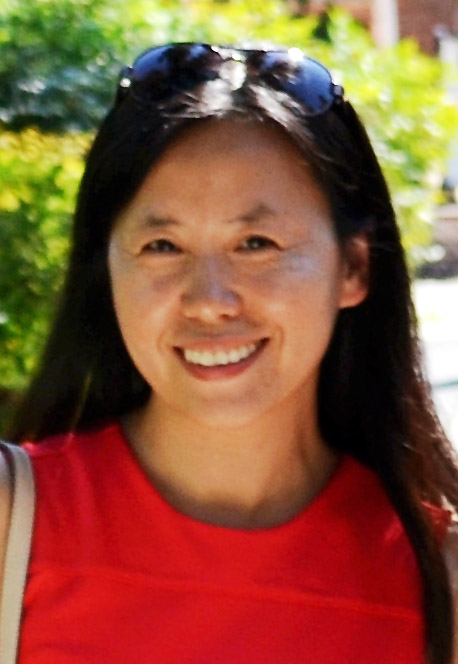From the Program Manager, Feb ’23: Realizing Exascale Vision, Phase 3 Begins
Important Announcement
Welcome to the first E3SM newsletter of 2023. To begin with, I would like to announce that E3SM has developed its initial benchmark of our cloud-resolving model on the world’s first and fastest exascale supercomputer Frontier! The new SCREAMv1 model running at a global 3.25 km resolution achieved a record-setting performance of more than 1 simulated-years-per-day. This significant achievement not only marks the beginning of the realization of E3SM’s exascale vision set a decade ago but is the first benchmark of this kind, providing valuable reference to the earth system modeling science community across the globe. I want to congratulate the E3SM project, Dave Bader, the Lead Principle Investigator, the E3SM Leadership Team, and the full team. Thank you all for your many years of devotion leading to this historical moment. Special thanks also to E3SM’s Chief Computational Scientist Mark Taylor as well as the ASCR-supported ECP project for Exascale readiness contributions and enabling early access to Frontier.
Additional E3SM Status and Achievements
I next want to congratulate the E3SM team on DOE’s acceptance of its Phase 3 proposal. I also would like to thank all the reviewers again for their constructive, insightful expert evaluations and comments. Based on the DOE’s decision, the E3SM team has begun realigning the project based on its renewed 10-year vision and Phase 3 goals. The project also developed a new Reporting System for Phase 3 to improve efficiency and resolve many challenges encountered during phase 2.
While Phase 3 is realigning, the E3SM team has continued making exciting progress. New data from E3SMv2.0 standard resolution configuration has been published for interested users. The E3SMv2.1 source code has been tagged in January. Though technically a minor release compared to version 2.0, E3SMv2.1 has substantial improvement in Atlantic Meridional Overturning Circulation (AMOC) representation (a major bias in E3SMv2), as well as in regional sea surface temperature (SST) and sea-ice simulations.
The Exascale and Portability Performance of the E3SM Atmosphere Model in C++ (EAMxx) has been examined, demonstrating EAMxx’s improved performance over EAM in Fortran across several different GPUs and CPUs. Exciting results from the E3SM ecosystem project, E3SM-MMF, have been presented in a recent Exascale Computing Project (ECP) Meeting, featuring a high-resolution coupled simulation with throughput 185x faster than the baseline cloud-resolving capabilities available in 2017!
Furthermore, a new version of E3SM-Unified was released in December and is available on 7 machines supported by E3SM. The third E3SM hackathon is being organized and will take place in early summer, focusing on the new Polaris software for developing test cases and analysis for E3SM ocean, sea ice, and land ice components.
Meetings and Workshops
In January, E3SM team members joined thousands of researchers at the 103rd AMS Annual Meeting and presented E3SM efforts. A few days later, the 6th international Workshop on Coupling Technologies for Earth System Models was held on the campus of Meteo France and online. E3SM’s team lead Robert Jacob served as a co-organizer of this meeting and provided a nice reflection on the major points of discussion regarding the latest features and issues surrounding the construction of coupled models in climate and earth system modeling. Following the flagship initiative of the European Commission in developing digital earth twins, a Workshop was organized in February by an ad hoc committee appointed by the National Academies of Sciences, Engineering, and Medicine (NASEM), titled Digital Twins in Atmospheric, Climate, and Sustainability Science. E3SM’s Chief Scientist, Ruby Leung, co-organized this workshop. E3SM’s chief Computational Scientist, Mark Taylor was a featured speaker.
DOE Funding Opportunities
Thanks to the pre-applications from many enthusiastic early career researchers to the DOE Early Career Funding Opportunity Announcements in the coastal-urban research area. The decision has been made and sent out. While preparing your full applications, you may find these Frequently Asked Questions and Answers useful. In support of the Energy Earthshots initiative, the DOE Office of Science recently announced $200 million in funding for Energy Earthshot Research Centers (EERCs) to solicit innovation and collaboration in fundamental research to tackle the toughest barriers to deploying emerging clean energy technologies. The annual DOE Graduate Student Research (SCGSR) program is now accepting applications. In addition, a new initiative called Reaching a New Energy Sciences Workforce (RENEW) was also announced to provide underrepresented undergraduate and graduate training opportunities.
Related to Earth and Environmental Systems Modeling Program (EESM)
As EESM continues its investment in coastal research activities, the EESM program organized a meeting in late January with project leads of EESM supported coastal projects to enhance coordination and information exchange. A new report from EESM supported Puget Sound Scoping Study was recently published. The report was based on a community workshop and literature review, summarizing some of the biggest challenges in understanding and modeling Earth system and human–Earth system dynamics in the Puget Sound region.
Selected Research highlights
The research highlights in this issue include how increased atmospheric carbon dioxide concentration modifies the diurnal timing of tropical forest rainfall, if sea-ice modeling tools designed for climate research can be used for short-term forecasting, how plants respond to coexisting soil and air dryness in global simulations and a study demonstrating rainfall associated with tropical cyclones (TCs) reduces the sea surface cooling induced by TCs themselves.
Dates to Remember
E3SM members, please reserve the week of Jun 26th for the hybrid E3SM All-Hands meeting. This will be the first E3SM meeting with an in-person component (tentatively in Denver, CO) since the pandemic. I look forward to meeting many of you in person!
Hope you enjoy the update and stay tuned for future E3SM Phase 3 activities,
Xujing
This article is a part of the E3SM “Floating Points” Newsletter, to read the full Newsletter check:



